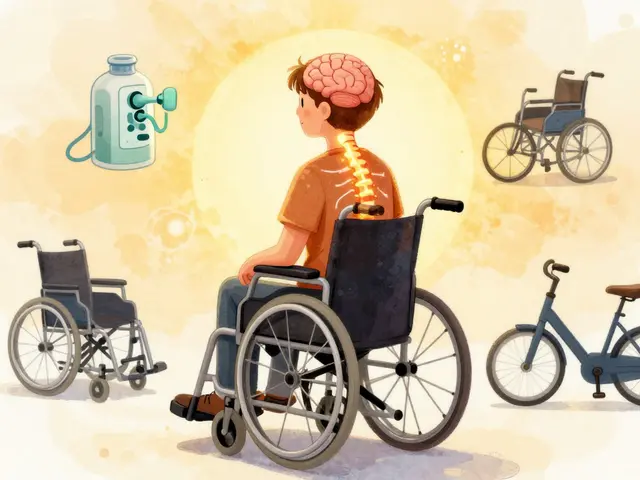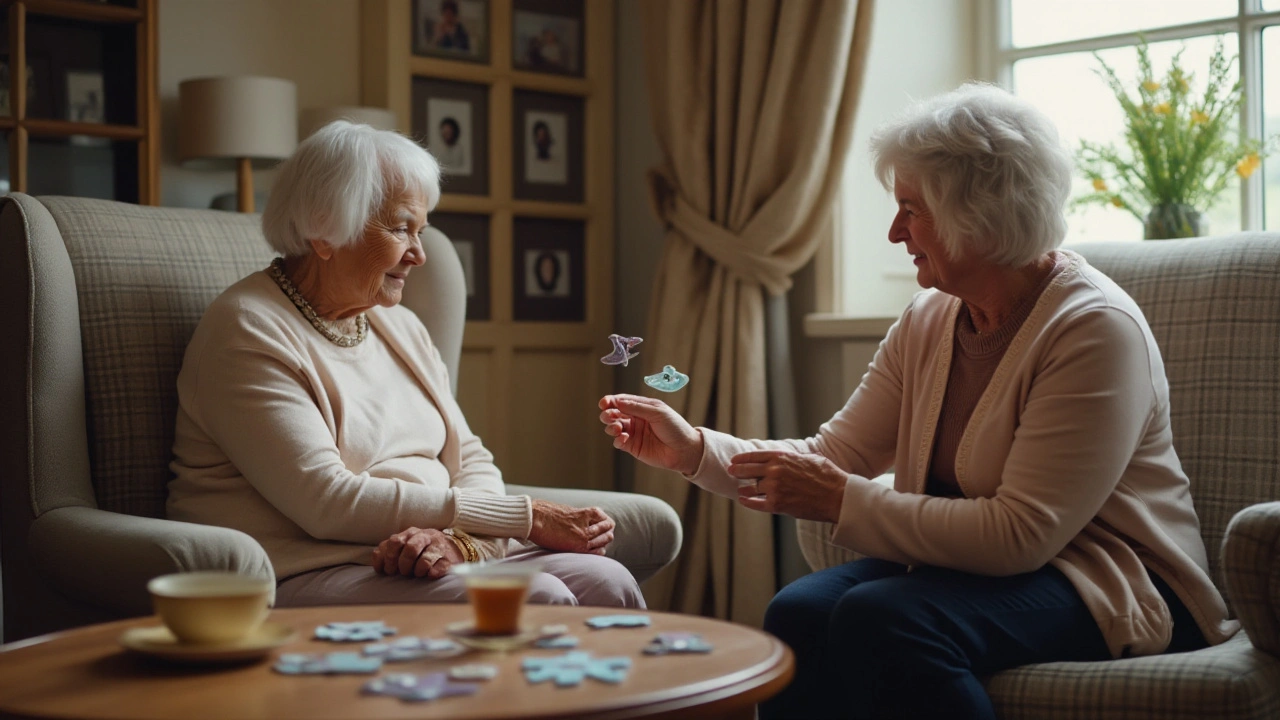Occupational Therapy in Alzheimer's Care — September 2024
This month's post on Candrugstore.com focuses on practical ways occupational therapy helps people with Alzheimer's and their caregivers. The article breaks down real techniques that keep daily life safer and more doable, shows how therapists set simple goals, and gives examples you can try at home right away.
Why occupational therapy matters
Occupational therapists look at what someone does every day — dressing, eating, moving around the house — and find smart, low-effort ways to keep those activities possible. Instead of fixing the disease, they help the person keep skills and independence for longer. That means fewer falls, less frustration, and more meaningful moments with family.
Examples from the post include breaking tasks into short steps, using visual cues like labels and photos, and adjusting the environment to cut down on confusion. The therapist also trains caregivers to use consistent routines and realistic expectations, which lowers stress for everyone.
Practical tips and next steps
Here are clear, usable takeaways from the September piece you can use now:
- Start with one small goal: pick a daily task the person still enjoys, like washing hands or folding towels, and simplify it. Remove unnecessary steps and keep tools within reach.
- Use cues: place a photo on the drawer with the socks, or a simple list by the sink. Short, visible reminders work better than spoken instructions that can be forgotten.
- Create safe zones: put frequently used items in one place, add non-slip mats, and remove clutter from hallways. Even small changes cut down on accidents.
- Keep activities meaningful: choose tasks tied to past roles or hobbies. If someone used to cook, let them stir batter while a caregiver handles the stove. This keeps skills active and boosts mood.
- Schedule short, regular sessions with an occupational therapist. They’ll assess abilities, suggest tools like built-up utensils or grab rails, and train family members in proper support techniques.
- Measure progress by function, not memory. Note if the person can complete a step, needs a prompt, or can’t do it even with help. These simple notes help the therapist adjust the plan.
- Teach caregivers simple communication tricks: speak slowly, offer one instruction at a time, and use concrete words. Praise success, even for small wins.
If you want to take action today, try one environmental change and one routine tweak. Track how the person responds for a week, then try another change. Occupational therapy is a step-by-step process — small changes add up.
Read the full article on Candrugstore.com to see case examples and tools mentioned in the September 2024 post. If you're caring for someone with Alzheimer's, this guidance is practical and designed to make daily life calmer and safer for both of you.
8
How Occupational Therapy Transforms Alzheimer's Dementia Care
Occupational therapy plays a crucial role in the care of individuals with Alzheimer's dementia. By focusing on maintaining independence and improving the quality of life, these therapies can make daily activities more manageable. This article delves into various techniques, benefits, and real-life applications of occupational therapy in dementia care.
Latest Posts
Popular Posts
-
 Spinal Cord Injury: Understanding Function Loss, Rehabilitation, and Assistive Devices
Spinal Cord Injury: Understanding Function Loss, Rehabilitation, and Assistive Devices
-
 Out-of-Pocket Costs: How Generics Cut Your Drug Bills - and When They Still Hurt
Out-of-Pocket Costs: How Generics Cut Your Drug Bills - and When They Still Hurt
-
 Duloxetine and Liver Health: What You Need to Know About Hepatotoxicity Risk
Duloxetine and Liver Health: What You Need to Know About Hepatotoxicity Risk
-
 Celiac Disease: Gluten-Free Living and Nutrient Supplementation
Celiac Disease: Gluten-Free Living and Nutrient Supplementation
-
 Enteral Feeding Tube Medication Safety: Compatibility and Flushing Protocols Explained
Enteral Feeding Tube Medication Safety: Compatibility and Flushing Protocols Explained



